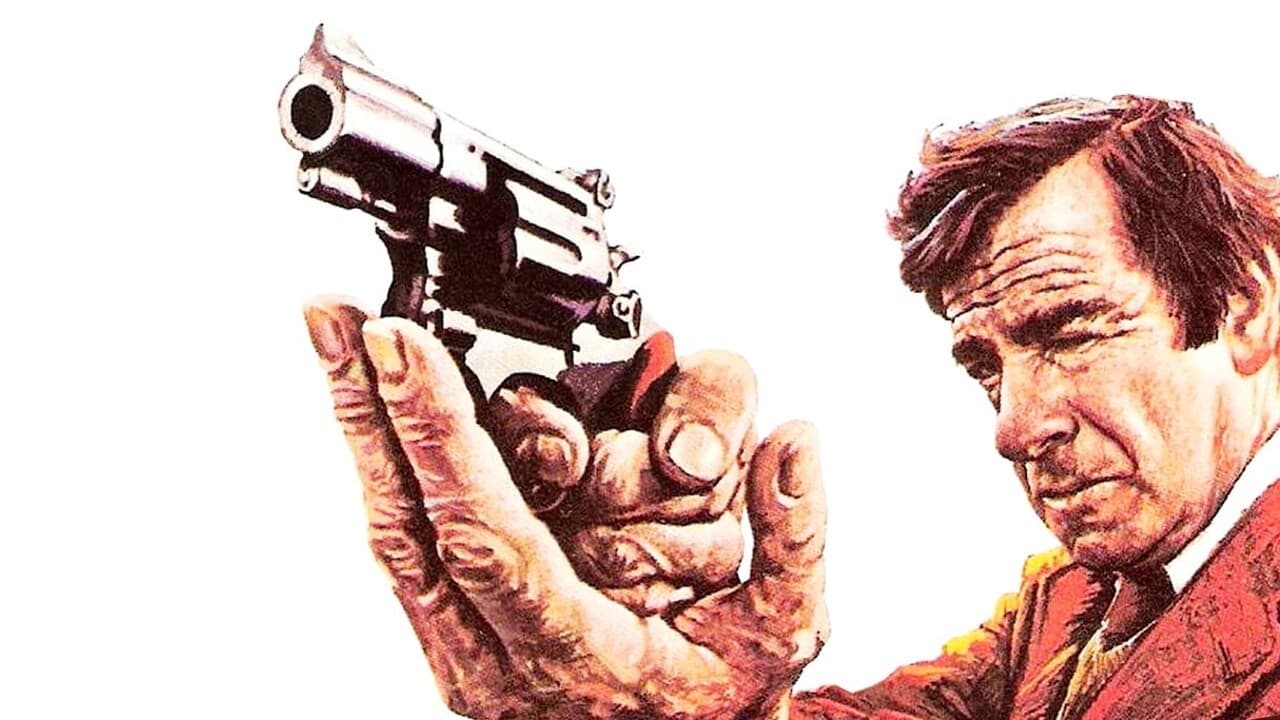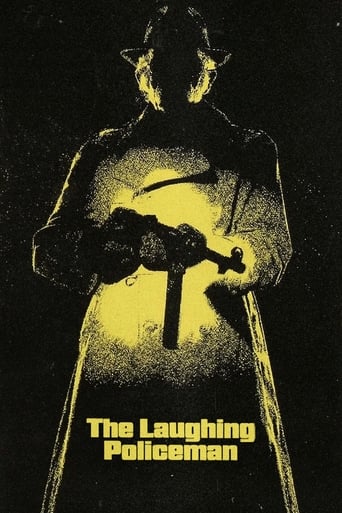filippaberry84
I think this is a new genre that they're all sort of working their way through it and haven't got all the kinks worked out yet but it's a genre that works for me.
Kimball
Exactly the movie you think it is, but not the movie you want it to be.
romanorum1
A short and pudgy man, aware that he is being tailed, makes a telephone call at the San Francisco bus terminal late at night. He and about seven others board a bus just before its departure. The fat man's eyes are on a tall, dark-haired fellow. The latter, despite all of the empty seats, sits next to an attractive nurse. An auto speeds past the moving bus and comes to a stop at the next bus stop. Wearing a brown trench coat and carrying a piece of luggage, the car driver boards the bus just in time. We do not see his face. There seems to be a slight acknowledgment from Fatman as Trench Coat walks past him to the rear of the bus. After he sits down Trench Coat dons on a pair of black gloves, zippering them up. From his luggage he removes and assembles a submachine gun ("a greaser"). As he stands up and aims his weapon, Fatman gets up and exclaims, "Not yet!" Ignoring him, Trench Coat fires away at all of the passengers, including Fatman, and the bus driver, killing them all except one, who will die shortly after. The bus crashes to a stop in Chinatown. Trench Coat exits the vehicle calmly and escapes.The police eventually arrive; SFPD Sgt. Jake Martin (Walter Mathau) is shocked when he discovers the body of the tall, dark-haired fellow. That was his partner Detective Dave Evans. But he was supposed to be on leave, unless he was on a special assignment. But was he? Fatman on the bus was Gus Niles. What was his relation to the killer? Why was Evans being set up? What about the other victims? We recognize that will be in a film that mostly deals with police work in tracking down each of the murdered passengers in order to find clues. Although many of the passengers have sordid pasts, most of the police work will lead to dead ends. Along the way we see emphasis placed on the hospital emergency room treatment of the wounded. Also, we will see a swat team in action and see what happens when street people are shaken up by the cops. Whether Haight/Ashbury or Laguna Street or Chinatown or the ghetto, the neighborhoods will tell us something about the people and their lifestyles. There will be prostitutes, petty criminals, hippies, and motorcycle gangs.Main leads include Insp. Leo Larsen (Bruce Dern) and Insp. James Larrimore (Louis Gossett Jr.). Larsen will be Martin's new partner. Martin has made it perfectly clear early on that he has little use for Larsen. And the feeling is mutual. There will even be some tension between Larsen and Larrimore. The latter will disappear from the movie with three-quarters of an hour left. Despite lack of support from their immediate superior, Martin and Larsen will have to unravel it all out and confront the bad guy. The climax almost seems unnecessary, although Martin did say that the police have to spook him out. But were the killer's last actions really obligatory? See the movie and find out. Positives are good acting and nice on-location shooting!
JasparLamarCrabb
SPOILER ALERT! There appears to be irony in the title since THE LAUGHING POLICEMAN offers no laughs. The efficient director Stuart Rosenberg makes an efficient crime thriller (about a psychopath on the loose in San Francisco and the cops who track him) but unfortunately, it's little more than that. It's cold, sometimes slow and completely devoid of laughs, despite the presence of Walter Matthau, who managed to add at least some (black) comedy to even the bleakest films (FAIL SAFE, CHARLIE VARRICK). Nevertheless, Matthau is still fine and Bruce Dern is excellent as his unexpected partner. There's also a really fine performance buried in the film by Cathy Lee Crosby (as the distraught wife of Matthau's first partner). Lou Gossett Jr. is a less than patient fellow cop and Anthony Zerbe is Matthau's crusty yet benign superior. A massacre on board a public bus is a real highlight. It's quite frightening.
birck
On the strength of Walter Matthau's ability with a character, the strong cast list, and the original Swedish crime novel-which was excellent-I watched the whole thing, unfortunately. As someone else on this forum noted, it works well for about the first 15-20 minutes, then decays into pointlessness. The main character's partner, played by Bruce Dern, is brought up short repeatedly when he makes wrong moves with witnesses, or says the wrong thing, so often that I expected an explosion. Which never came, and that thread finally went nowhere. A meeting with a group of Hell's Angels went nowhere, at least for the story. I could handle the dated costumes and social norms, but after an hour or so, it seemed as if that's all the film had to offer-a tour of SF's colorful corners in the Haight-Ashbury era, with a tacked-on murder mystery that came to no satisfying conclusion. It isn't necessary for every film-made-from-a-novel to stick exactly to the original, word-for-word, but the only good part of this film was that first 15-20 minutes, which is transported fairly closely from Stockholm, where the original was set, to San Francisco. Once the bus has crashed, and the dead passengers have been identified, It goes rolling straight down Potrero Hill and into the Bay.
senortuffy
This is a somewhat interesting film about two policemen, Walter Mathau and Bruce Dern, trying to solve a mass murder where one of the victims was Mathau's partner.The story starts out pretty good. A cop tails a man onto a bus in San Francisco one night. Along the route, another man boards the bus and moves all the way to the back. A few minutes later, he stands up and starts spraying the bus with a machine gun. He kills everyone and then walks away after the bus crashes into some bushes. Mathau arrives at the scene and discovers his partner was the cop who was tailing somebody.The evidence takes the police on a scenic journey through San Francisco's underbelly - drugs, prostitution, drag queens, sex parlors, the whole works. It was probably risqué at the time, but it's a bit tame by contemporary standards.There's a problem with the editing of this film. Some scenes are included for shock value, while scenes that could have moved the story along are omitted. At times it's hard to follow what's going on with the film jumping around a lot.The dialog is pretty dated too - Lou Gossett's especially. But Walter Mathau's performance as a rumpled detective working the case while his home life falls apart makes this film worthwhile. Bruce Dern's character is so irritable that it's hard to like him, but I suppose that's what the director wanted. Anthony Zerbe is the best of a mediocre supporting cast.The film is good entertainment and worth watching for Mathau and the San Francisco scenery alone. And you'll get a few laughs at all the long hair and period attire.

